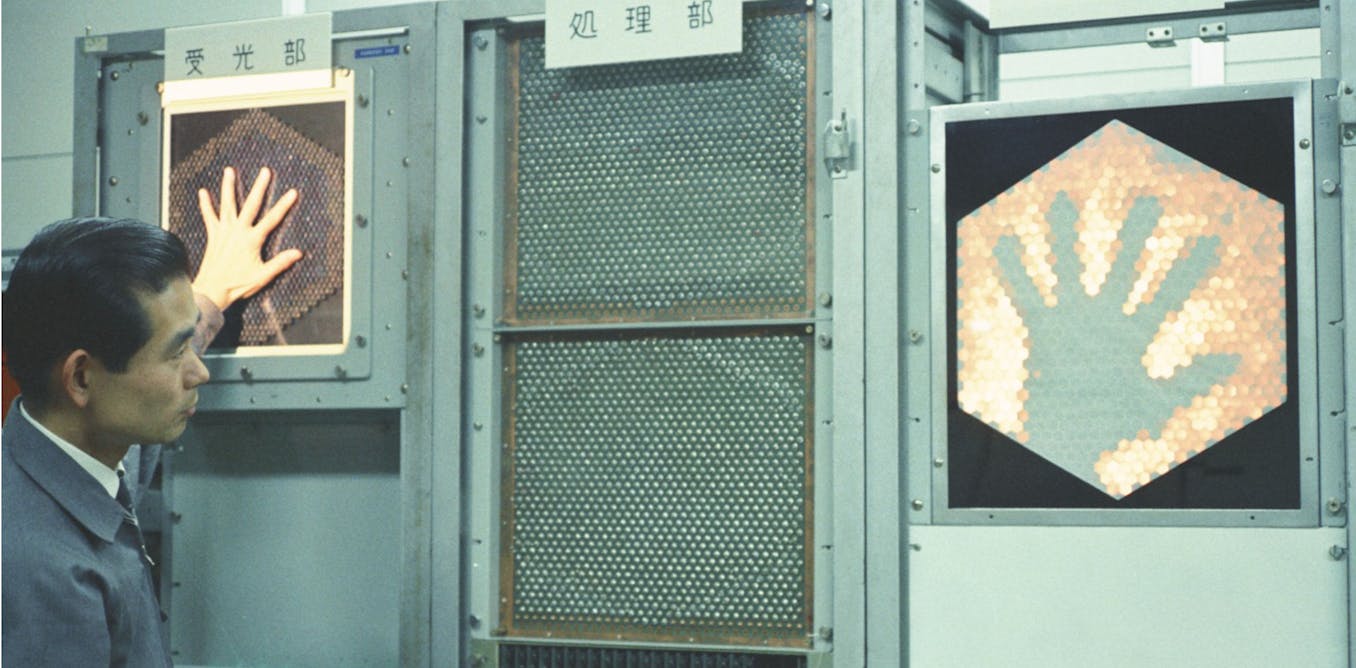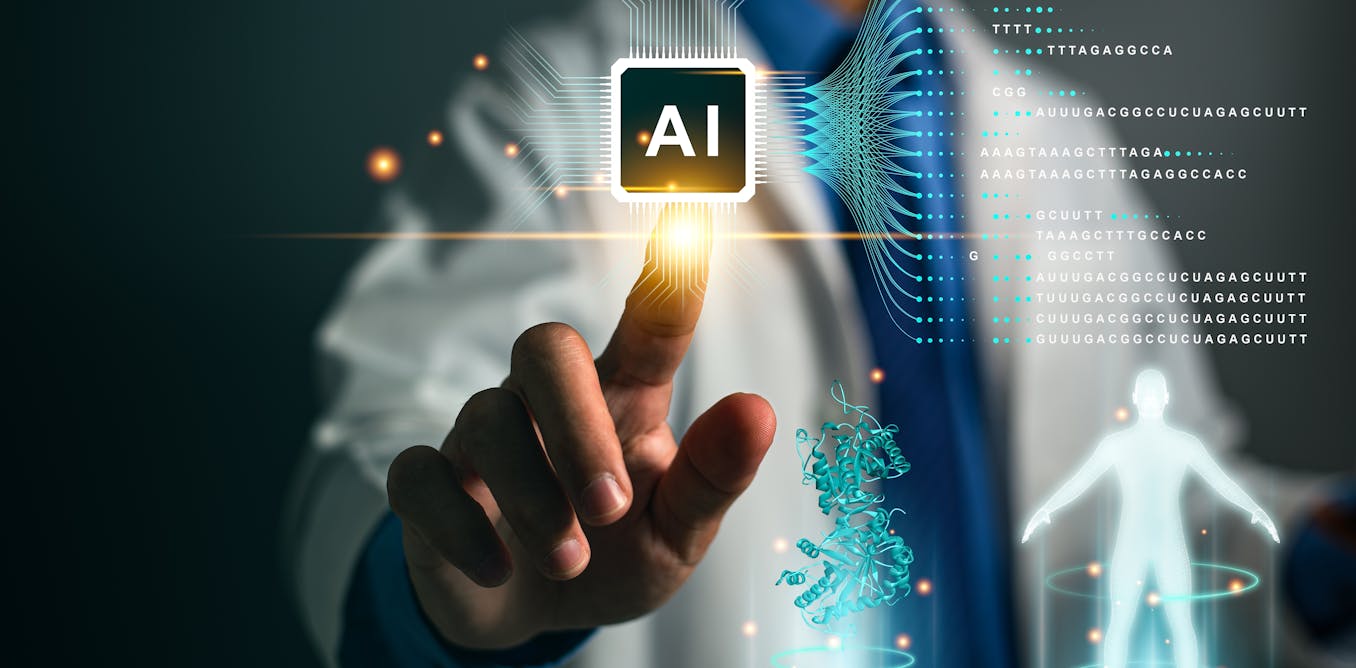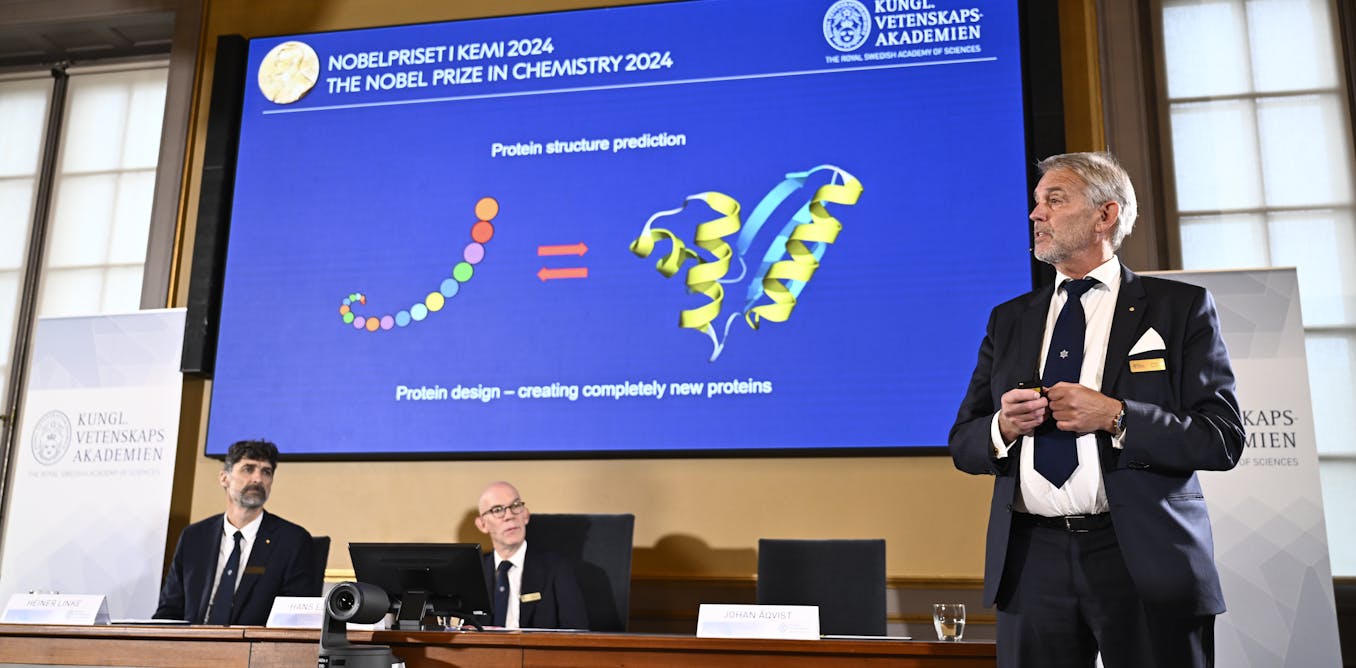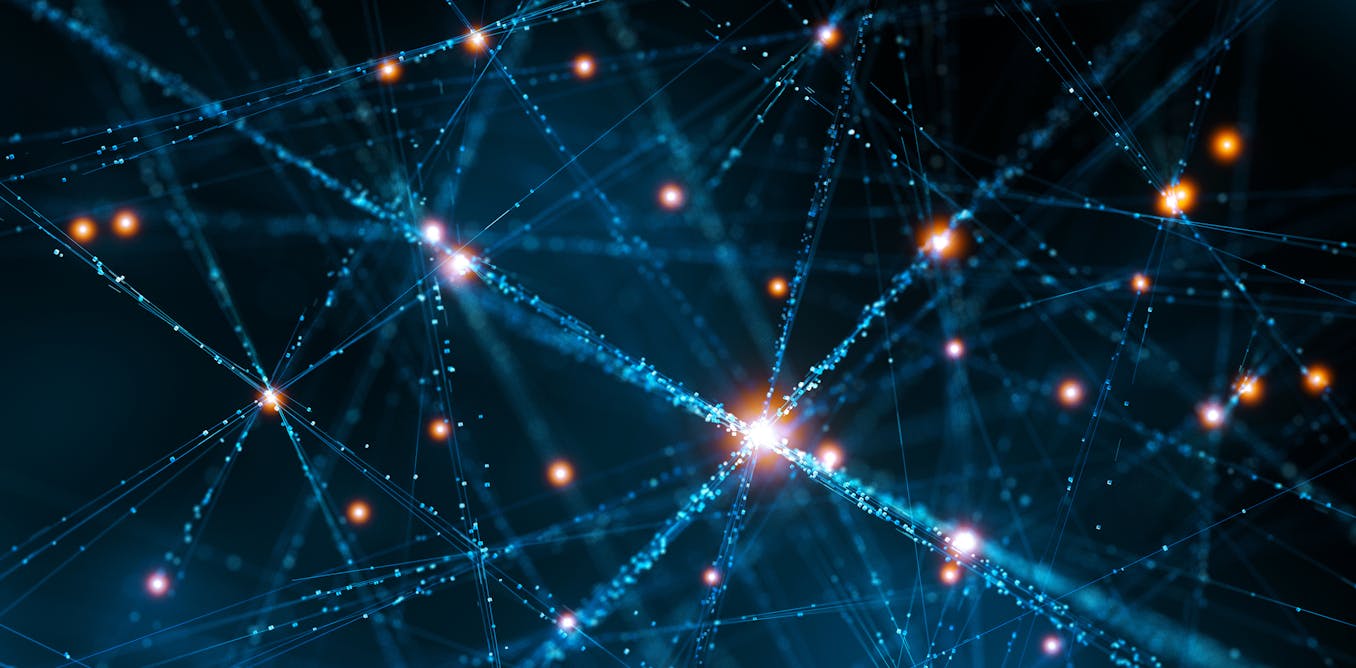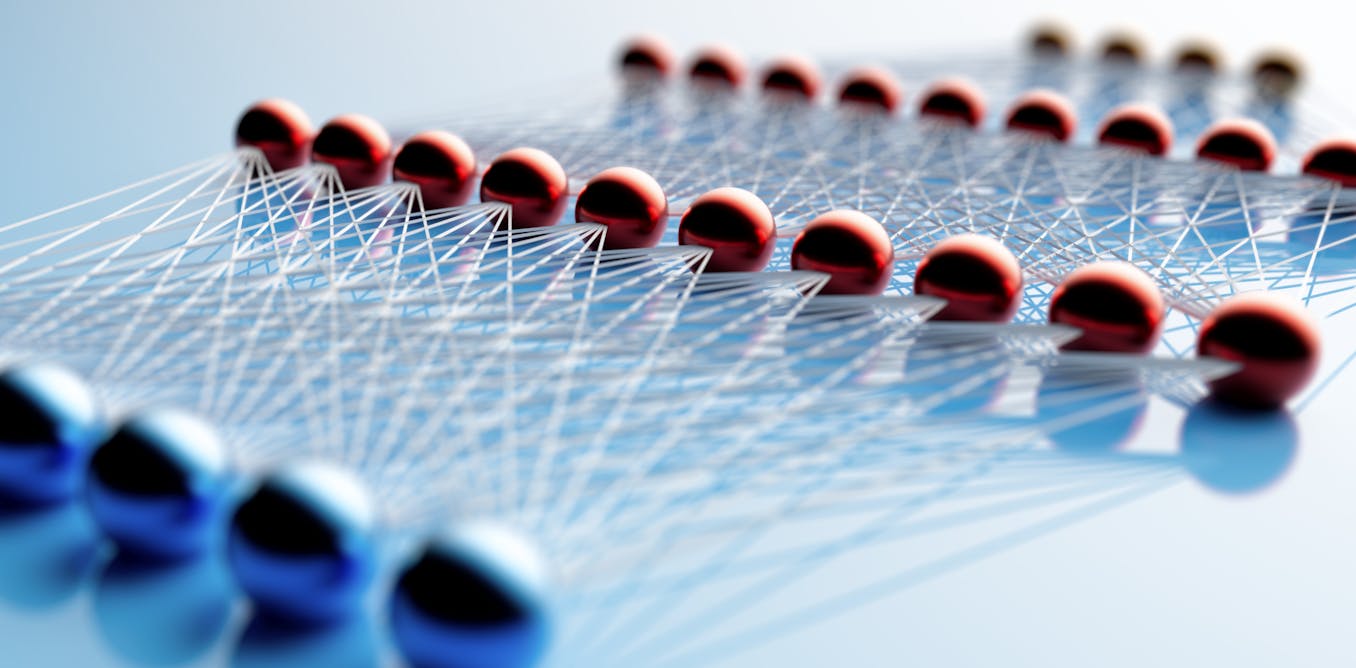MicroRNA − a new Nobel laureate describes the scientific process of discovering these tiny molecules that turn genes on and off
Victor Ambros received half of the Nobel Prize for his work on microRNAs. Here he talks about the teamwork – and the nematodes – that made the discovery possible.
Oct. 17, 2024 • ~12 min
AI was central to two of 2024’s Nobel prize categories. It’s a sign of things to come
AI will feature in future Nobel prizes as scientists exploit the power of this technology for research.
Oct. 10, 2024 • ~5 min
Machine learning cracked the protein-folding problem and won the 2024 Nobel Prize in chemistry
The prize honors innovation at Google DeepMind and in academia. Three researchers share the award for using machine learning to predict proteins’ 3D shapes and design the molecules from scratch.
Oct. 9, 2024 • ~10 min
How a subfield of physics led to breakthroughs in AI – and from there to this year’s Nobel Prize
Two researchers whose work has led to the AI revolution won the 2024 Nobel Prize in physics. A materials physicist explains statistical mechanics, the physics field behind their discoveries.
Oct. 9, 2024 • ~8 min
Nobel Prize in physics spotlights key breakthroughs in AI revolution − making machines that learn
The Nobel Prize shows that the field of artificial neural networks – and the deep learning AI revolution the technology unleashed – owe as much to physics as biology and computer science.
Oct. 8, 2024 • ~8 min
Many stable atoms have ‘magic numbers’ of protons and neutrons − 75 years ago, 2 physicists discovered their special properties
All the oxygen in your body is thanks to magic numbers of protons and neutrons in the nucleus.
Oct. 7, 2024 • ~9 min
MicroRNA is the Nobel-winning master regulator of the genome – researchers are learning to treat disease by harnessing how it controls genes
Victor Ambros and Gary Ruvkun won the 2024 Nobel Prize in physiology or medicine for their discovery of microRNAs, molecules that turn genes on and off – and cause disease when they go awry.
Oct. 7, 2024 • ~9 min
/
6

